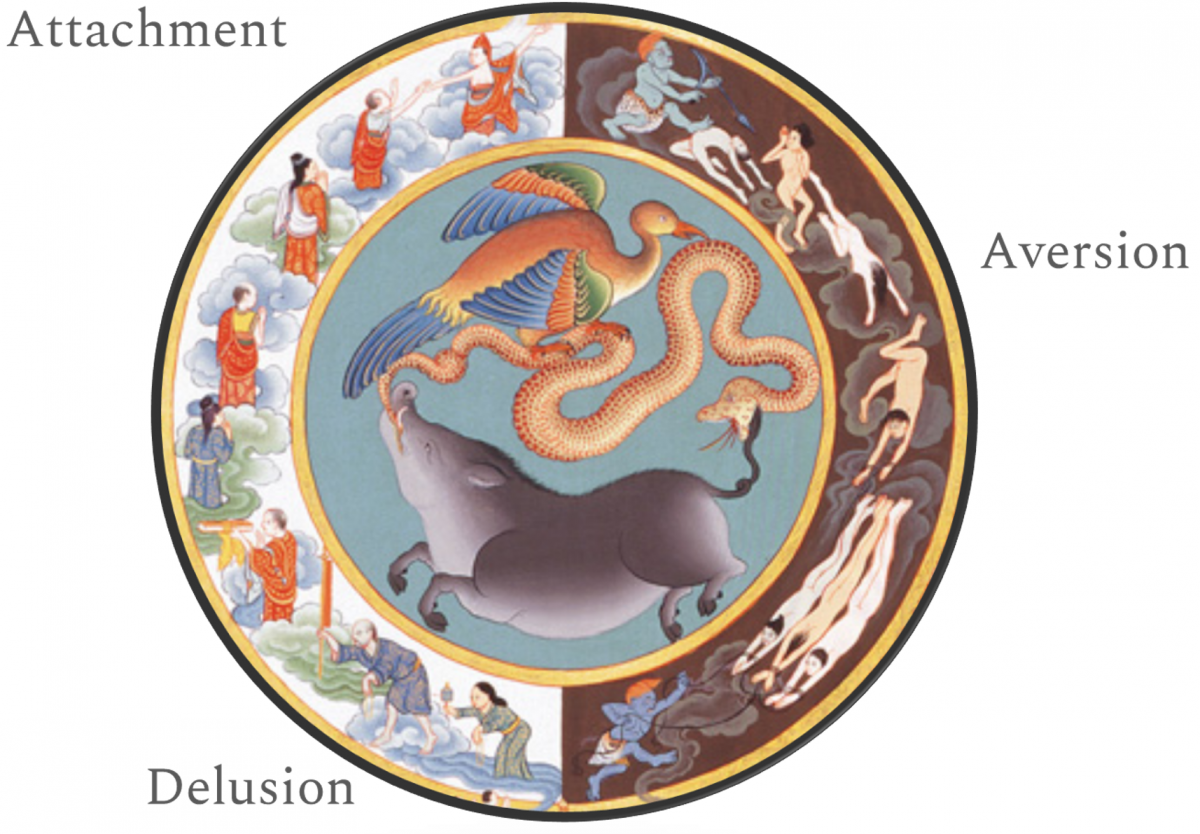Spirituality is part addition, part subtraction.
In the West, we tend to focus on the addition part: doing things, getting things, and achieving things. That is not necessarily bad, but in our focus on addition, we can sometimes inadvertently add things that are not healthy, like perfectionism. We can also fail to account for our Western worldview and how it impacts our spirituality.
Almost every time I give a talk or lesson at church, I incorporate some concepts from Buddhism. People who know me or who have read things I’ve written are probably familiar with the Buddhist concept of the three poisons. It’s a concept I come back to again and again because I think it’s so valuable. The basic idea is that life involves suffering, and much of our suffering in life is self-generated. Buddhists teach that there are three “poisons” that we use to create our own suffering:
- Attachment/craving (“I need x to happen in order for me to be happy”)
- Aversion/hatred (“I need x not to happen in order for me to be happy”)
- Delusion/ignorance (“I need reality to be something other than what it is”)
To avoid creating our own suffering via the three poisons, we need to first recognize how they are at work in our thinking. But then, the answer is not to “fight” the poisons because that just creates more poison. The answer is to mindfully, compassionately see them at work in our psyche, and over time, let go of them. This involves maturity, and it is the subtraction part of spirituality.
Buddhists generally frame enlightenment in terms of being free from attachments, aversions, and delusions. Latter-day Saints frame eternal life in terms of conversion: a long process of developing God’s understanding of reality, and acquiring God’s attributes. I think we’re essentially articulating two aspects of the same thing.
Seeing people’s responses to General Conference, it’s not hard to see the three poisons at work. And I would also suggest that the concept of the three poisons should inform how we approach social media and our IRL friend groups. If we surround ourselves with voices of people who are poisoned with attachment, aversion and delusion, we are likely to take in those poisons. Mute and block are valuable functions for preventing this, but equally important is choosing to surround ourselves with healthy voices in the first place.
I have some friends who share my faith, some who are hostile to my faith, and some in between. I apply the same consistent rule to all of them. If they are consumed with the three poisons, I minimize – subtract – their influence in my life in social media and other places. This is what Jesus was suggesting when He said that if my eye causes me to stumble, I should pluck it out. On the other hand, if people reject the three poisons, which I call simply living well in reality, then I maximize their influence in my life.
In non-religious terms, we also see this in Cognitive Behavior Therapy, where a goal in our mental health is to let go of destructive habits of thinking (cognitive distortions) that we apply to ourselves and others. If you understand cognitive distortions, it’s easy to see how they correspond to the three poisons. If we surround ourselves with people who have good cognitive behavior (which is just healthy engagement with reality), then we are likely to develop good cognitive behavior.
“Then those people are right who say that Heaven and Hell are only states of mind?”
“Hush,” said he sternly. “Do not blaspheme. Hell is a state of mind— ye never said a truer word. And every state of mind, left to itself, every shutting up of the creature within the dungeon of its own mind— is, in the end, Hell. But Heaven is not a state of mind. Heaven is reality itself. All that is fully real is Heavenly. For all that can be shaken will be shaken and only the unshakeable remains.”C.S. Lewis, The Great Divorce

